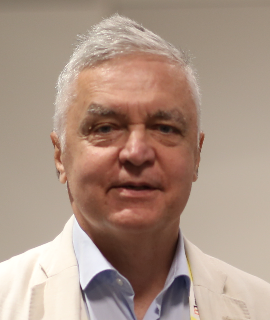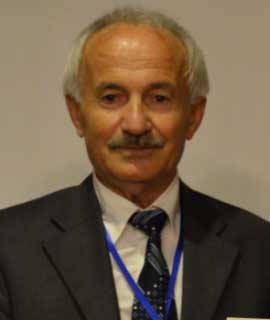CCET 2025_ Event Postponement
This is to inform that due to some circumstances beyond the organizer control, “20th Edition of Global Conference on Catalysis, Chemical Engineering, and Technology” (CCET 2025) March 27-29, 2025 | Hybrid Event has been postponed. The updated dates and venue will be displayed shortly.
Your registration can be transferred to the next edition, if you have already confirmed your participation at the event.
For further details, please contact us at catalysis-chem@magnusconference.com or call + 1 (702) 988 2320.
The science of plasma catalysis is an area where physics and chemistry intersect across disciplines. A plasma is a 'soup' of species that includes charged or excited molecules and atoms, as well as free electrons. Plasma catalysis refers to the use of plasma to directly initiate a reaction as well as the use of plasma in conjunction with a catalytic material. Post plasma catalysis (PPC) is when the catalyst is placed after a plasma zone, while in-plasma catalysis is when the catalyst is placed within the plasma zone (IPC)
Plasma catalysis is gaining popularity for CO2 conversion into value-added chemicals and fuels, CH4 activation into hydrogen, higher hydrocarbons or oxygenates, and NH3 synthesis, among other gas conversion applications. Other uses, such as air pollution control, such as volatile organic compound cleanup, particulate matter removal, and NOx removal, are already well-established. Plasma catalysis has distinct advantages over 'conventional' catalysis.
- Post Plasma Catalysis (PPC)
- In-Plasma Catalysis (IPC)

Thomas J Webster
Interstellar Therapeutics, United States
Sergey Suchkov
R&D Director of the National Center for Human Photosynthesis, Mexico
Christopher Koroneos
University of Western Attica, Greece
Haibo Ge
Texas Tech University, United States
Valery P Kalinitchenko
All Russian Phytopathology Research Institute, Russian Federation
Osman Adiguzel
Firat University, Turkey
Delia Teresa Sponza
Dokuz Eylul University, Turkey
Guangnan Ou
Jimei University, China


Title : Using cells as the environmentally catalyst for nanoparticle synthesis: Killing bacteria, inhibiting inflammation, and growing tissues
Thomas J Webster, Interstellar Therapeutics, United States
Title : Personalized and Precision Medicine (PPM) as a unique healthcare model to be set up through biodesign-inspired biotech-driven translational applications and upgraded business marketing to secure the human healthcare, wellness and biosafety
Sergey Suchkov, R&D Director of the National Center for Human Photosynthesis, Mexico
Title : Chemical soil biological engineering and biogeosystem technique methodology
Valery P Kalinitchenko, All Russian Phytopathology Research Institute, Russian Federation
Title : Antibody-proteases as translational tools of the next-step generation to be applied for biotech, bioindustry and personalized and precision medical practice
Sergey Suchkov, R&D Director of the National Center for Human Photosynthesis, Mexico
Title : Shape memory phenomena and crystallographic transformations in shape memory alloys
Osman Adiguzel, Firat University, Turkey
Title : Construction of artificial metalloenzymes by protein refolding
Guangnan Ou, Jimei University, China
Title : Photoremoval of some brominated phenols (4-bromophenol and 2,4,6-tribromophenol) with reused polystyrene foam and SnO2
Delia Teresa Sponza, Dokuz Eylul University, Turkey
Title : Phenol removal from wastewater using innovative biological and industrial wastes as adsorbents
Ashanendu Mandal, University of Calcutta, India
Title : Boom of nanomaterials in environmental remediation
Vijendra Singh Solanki, Institute of Science and Research, India
Title : Process intensification for the production of 2, 2-dimethoxypropane using Fixed BED Chromatographic Reactor (FBCR)
Akash Sunilrao Shinde, Indian Institute of Technology Bombay, India